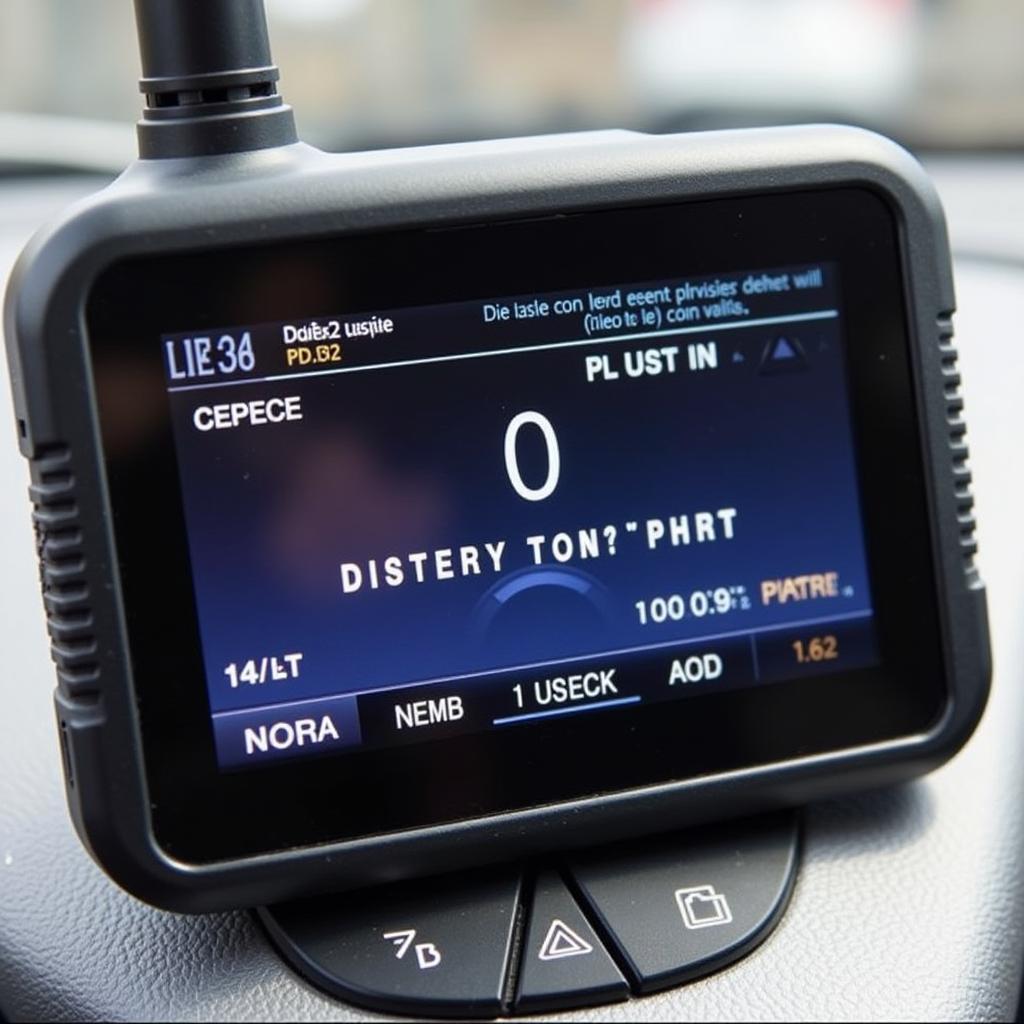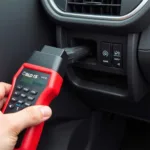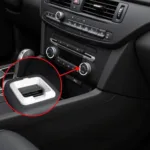The On-board Diagnostics port, or OBD2 port as it’s more commonly known, is like a window into your car’s computer system. But what information does OBD2 provide, and why should you care? This article delves deep into the world of OBD2, exploring the wealth of data it unlocks and how this knowledge can empower car owners and professionals alike.
Imagine being able to diagnose engine problems, track fuel efficiency, and even monitor your driving habits – all through a small port located under your dashboard. That’s the power of OBD2. It serves as a standardized system enabling communication between your car’s electronic control unit (ECU) and the outside world.
Unmasking the Mysteries: Common Data Points from OBD2
Connecting an OBD2 scanner, a handheld device that acts as a translator, to your car’s port reveals a treasure trove of information.
-
Diagnostic Trouble Codes (DTCs): These cryptic codes are your starting point for troubleshooting car problems. They pinpoint malfunctions within the engine, transmission, emissions system, and more.
-
Vehicle Speed: OBD2 provides real-time data on your car’s speed, offering insights into driving behavior and potential issues.
-
Engine RPM: Knowing your engine’s revolutions per minute can help you understand fuel consumption patterns and identify engine strain.
-
Engine Coolant Temperature: This reading ensures your engine is operating within a safe temperature range, preventing overheating.
-
Fuel System Status: OBD2 gives you a peek into your fuel system’s health, showing fuel pressure, delivery, and potential leaks.
-
Oxygen Sensor Data: Monitoring oxygen sensor readings helps optimize fuel-air mixture, impacting both performance and emissions.
Beyond the Basics: Advanced Insights from OBD2
While the above data points are commonly accessed, OBD2’s capabilities extend far beyond. Depending on the sophistication of your scanner and your car’s make and model, you can access:
-
Air Intake Temperature: This reading is crucial for optimizing fuel injection and ensuring efficient combustion.
-
Throttle Position: Understanding how far the throttle plate is open helps assess engine load and potential throttle-related issues.
-
Ignition Timing: Accurate ignition timing is vital for engine performance and fuel economy. OBD2 allows you to monitor this critical aspect.
-
Emissions Data: OBD2 provides in-depth information on your car’s emissions system, including readings from the catalytic converter and evaporative emissions system.
The Power of OBD2: Benefits for Every Driver
Understanding “what information does OBD2 provide” goes beyond technical curiosity. This knowledge translates to tangible benefits:
-
Early Problem Detection: OBD2 acts like an early warning system, catching potential issues before they escalate into costly repairs.
-
DIY Diagnostics: Armed with an OBD2 scanner and the right information, you can diagnose many car problems yourself, saving on mechanic fees.
-
Improved Fuel Efficiency: By monitoring fuel system data and driving habits, you can optimize fuel consumption and save money at the pump.
-
Enhanced Car Maintenance: OBD2 data empowers you to make informed decisions about your car’s maintenance needs, ensuring optimal performance and longevity.
OBD2: A Gateway to Informed Car Ownership
As cars become increasingly computerized, the OBD2 port has evolved into an essential tool for anyone who owns or works with vehicles. By understanding the wealth of information it provides, you unlock a new level of control and awareness over your car’s health, performance, and even your own driving habits. Whether you’re a seasoned mechanic or a car enthusiast, the OBD2 port is your key to unlocking a deeper understanding of your vehicle.
Frequently Asked Questions about OBD2 Information
1. Can I use any OBD2 scanner to access all the information?
While all OBD2 scanners can access basic data, more advanced information may require specialized scanners or software.
2. Does the age of my car affect the OBD2 data available?
Cars manufactured after 1996 in the US are required to have OBD2 ports. However, the amount of information accessible can vary depending on the make, model, and year.
3. Is it legal to use an OBD2 scanner on my own car?
Yes, it is perfectly legal to use an OBD2 scanner on your own vehicle.
4. Can I reset my check engine light using an OBD2 scanner?
Yes, most OBD2 scanners allow you to reset the check engine light. However, it’s essential to address the underlying problem that triggered the light in the first place.
5. Where can I find reliable resources to interpret OBD2 data?
Websites like OBDFree offer comprehensive guides, articles, and resources to help you understand and utilize OBD2 information effectively.
Need Help Choosing the Right OBD2 Scanner?
Contact us today via WhatsApp at +1(641)206-8880 or email us at [email protected]. Our team of experts is available 24/7 to guide you towards the perfect OBD2 solution for your needs.


